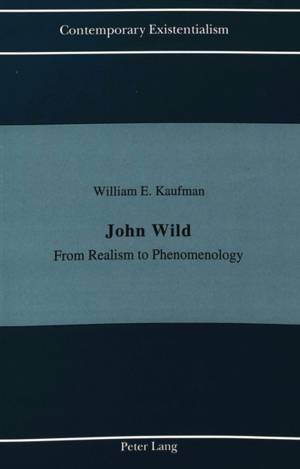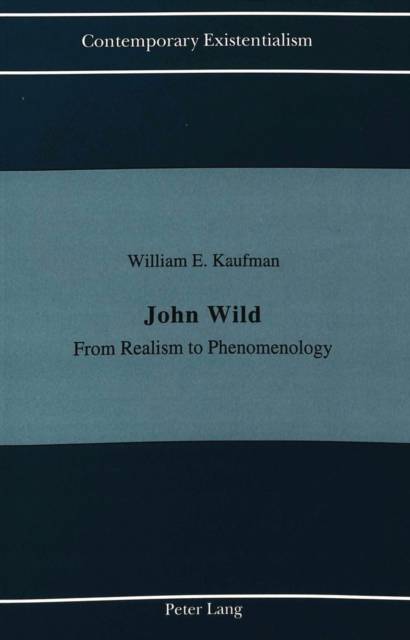
- Afhalen na 1 uur in een winkel met voorraad
- Gratis thuislevering in België vanaf € 30
- Ruim aanbod met 7 miljoen producten
- Afhalen na 1 uur in een winkel met voorraad
- Gratis thuislevering in België vanaf € 30
- Ruim aanbod met 7 miljoen producten
Zoeken
Omschrijving
John Wild (1902-1972) was a leading American philosopher noted for his work in existentialism and phenomenology, modes of thought that focus on human consciousness and subjectivity. He made a transition to existential phenomenology after being a major proponent of realism, as well as president of the Association for Realistic Philosophy in 1949. By examining Wild's philosophical development from realism and its search for objective truth to phenomenology, the author concludes that Wild brings realistic concerns to his analysis of existential phenomenology. Moreover, Dr. Kaufman argues that Wild's realistic version of existential phenomenology becomes problematic when Wild strives to establish metaphysical conclusions about the nature of the world and Divine Transcendence from a phenomenological analysis of human existence as lived from within. The analysis of Wild's wide-ranging philosophy raises important issues in ethics, epistemology, metaphysics, and philosophy of religion.
Specificaties
Betrokkenen
- Auteur(s):
- Uitgeverij:
Inhoud
- Aantal bladzijden:
- 226
- Taal:
- Engels
- Reeks:
- Reeksnummer:
- nr. 5
Eigenschappen
- Productcode (EAN):
- 9780820427966
- Verschijningsdatum:
- 1/04/1996
- Uitvoering:
- Paperback
- Formaat:
- Trade paperback (VS)
- Afmetingen:
- 160 mm x 230 mm
- Gewicht:
- 329 g

Alleen bij Standaard Boekhandel
+ 126 punten op je klantenkaart van Standaard Boekhandel
Beoordelingen
We publiceren alleen reviews die voldoen aan de voorwaarden voor reviews. Bekijk onze voorwaarden voor reviews.








